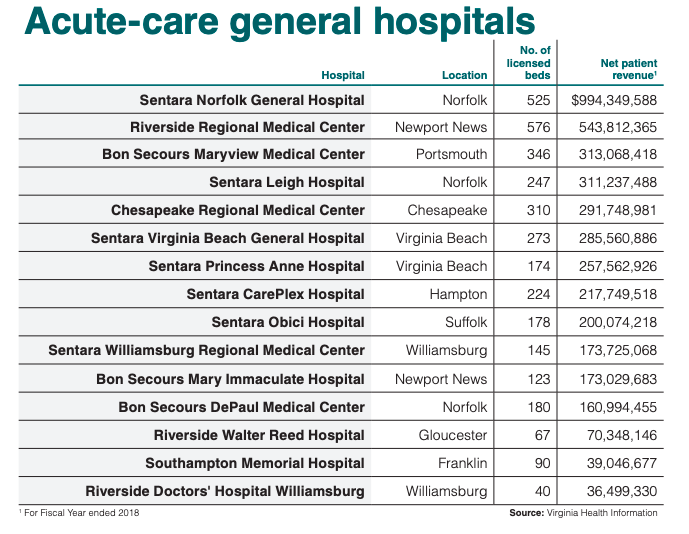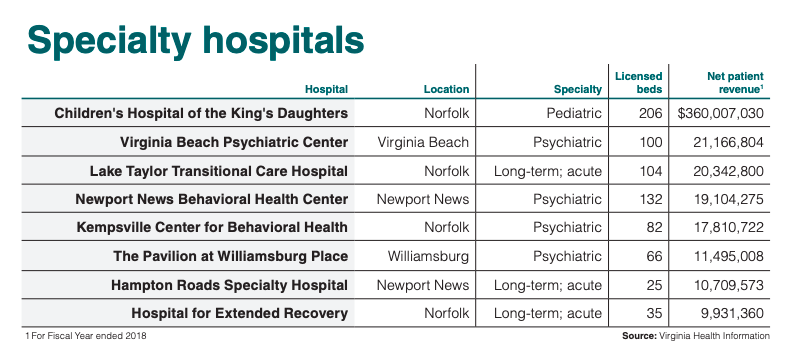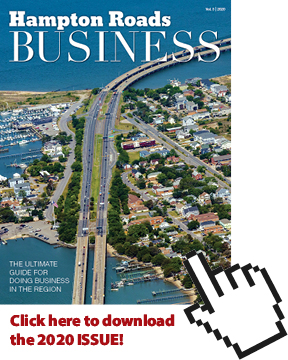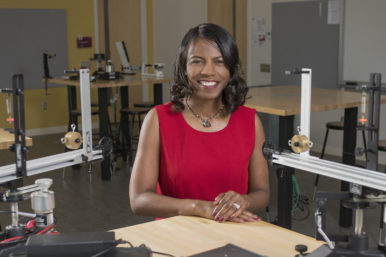Even as the COVID-19 pandemic stresses Virginia hospitals, Hampton Roads’ health care sector continues to grow.
Richmond-based VCU Health System is making inroads in the region through partnerships with Riverside Health System and Sentara Healthcare.
In March, VCU Health System announced a formal affiliation with Newport News-based Riverside. The two organizations have identified areas “of mutual commitment and interest,” likely to spawn clinical, research and education projects, including a plan to increase existing medical education programs to address the growing shortage of physicians within the region.
One sign of the strengthened relationship: VCU Health System announced in March its plans to buy the 67-bed Riverside Tappahannock Hospital and related services, as well as physicians’ practices located in the region. The two health systems say the move will give patients access to a broader range of medical specialists, clinical trials and state-of-the-art technology. Financial terms of the deal were not released.
In April, VCU Health System announced that it had finalized the sale of a majority stake in the Virginia Premier health plan to Norfolk-based Sentara Healthcare. VCU has retained a 20% owner-ship in Virginia Premier, which it founded in 1995. Virginia Premier offers Medicare, Medicaid and health insurance exchange plans to more than 280,000 members.
Virginia Premier and Optima Health Plan, a wholly owned subsidiary of Sentara Healthcare, will operate as separate companies with different administrators and separate boards of directors. The Optima Health Plan provides coverage to more than 550,000 people, and according to a statement from Sentara, members shouldn’t see changes to their benefits or approved doctors.
On June 1, the $93.5 million, 253,000-square-foot Sentara Brock Cancer Center opened in Norfolk after two years of construction. The center will allow expert care teams, community organizations and holistic treatment providers to operate under one roof on the Sentara Leigh Hospital campus. Eastern Virginia Medical School and Virginia Oncology Associates also are partners in the facility.
In August, Sentara announced that it had signed a letter of intent to combine organizations with Greensboro, North Carolina-based Cone Health. Financial details were not disclosed, but the two health systems have combined revenues of $11.5 billion. Their headquarters will remain separate, according to Sentara, and the merger is subject to state and federal regulatory review. Sentara President and CEO Howard Kern will lead the combined organization from Norfolk.
The deal is set to close in mid-2021, and it will take up to two years for the systems to fully integrate.
Bon Secours also has plans to grow in the region, where it operates five hospitals and medical centers. The Cincinnati-based health system announced in July it had filed a certificate of public need (COPN) to expand the Bon Secours Health Center at Harbour View in Suffolk by 67,000 square feet and add up to 36 beds in a $115.7 million project. The state will need to approve the expansion.
“This expansion would help us meet the growing demand for inpatient services and allow for more flexibility in patient placement, bring much-needed obstetrical services to the area and ensure that we are prepared to handle any potential surge in patient volume well into the future,” said Kate Brinn, president of Bon Secours Maryview Medical Center and Bon Secours Harbour View Medical Campus.









